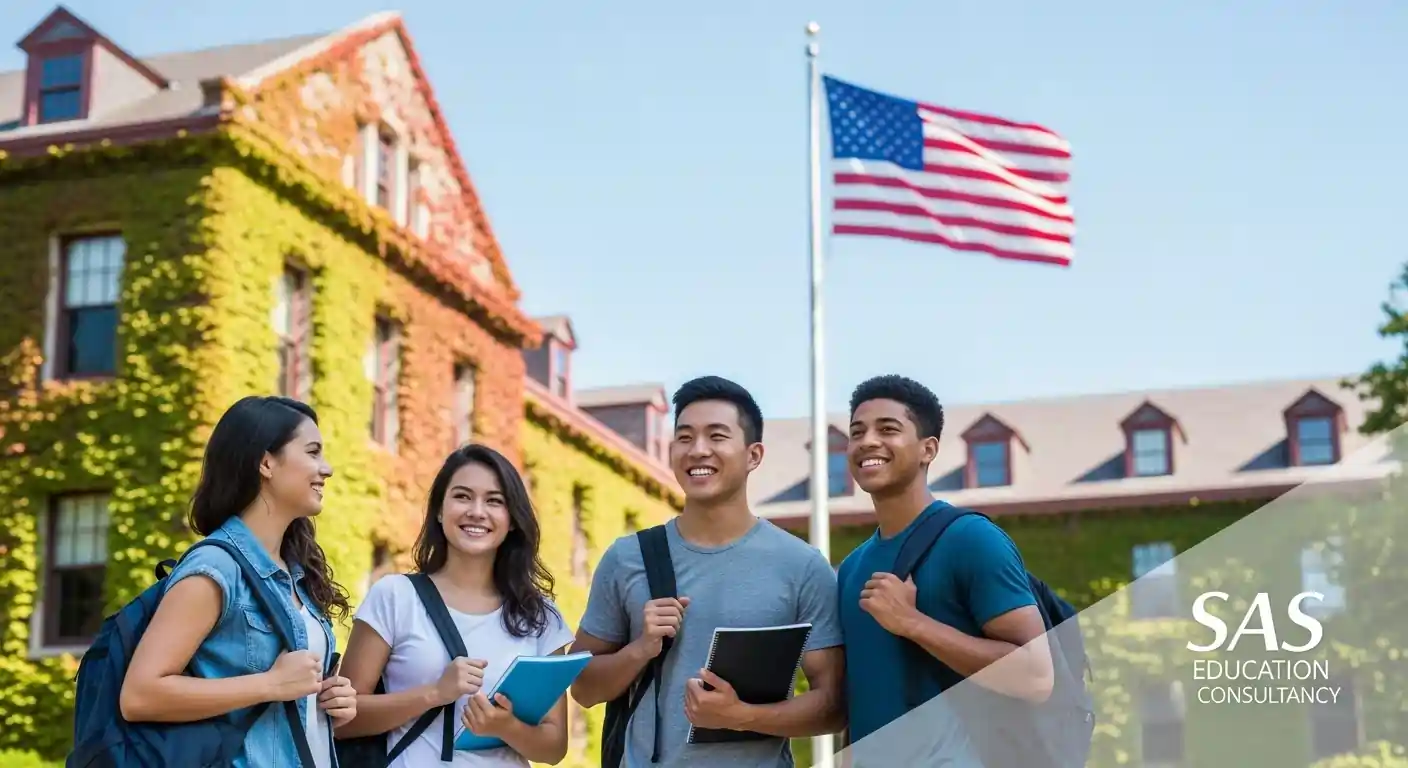World-Class Education
Gain globally recognized degrees from top-ranked universities.
Explore top universities, a wide range of courses, affordable study options, and scholarship opportunities in the USA, the perfect place for higher education and personal growth.
The USA is one of the top destinations for Nepalese students seeking world-class education. Home to thousands of universities and colleges, it offers a vast range of programs in fields like business, technology, medicine, arts, and social sciences. With over 4,000 institutions and countless specializations, students can earn degrees recognized and respected globally. The USA is known for its academic excellence, cutting-edge research opportunities, diverse cultural environment, and strong career prospects after graduation. Generous scholarships and financial aid options make studying in the USA more accessible for Nepalese students aiming to achieve their dreams.

Gain globally recognized degrees from top-ranked universities.
Choose from thousands of programs across multiple disciplines.
Access cutting-edge facilities and hands-on learning opportunities.
Boost employability with international exposure and experience.
Experience multicultural environments and global networking.
Benefit from various scholarships and financial support options.
The US Government offers three different student visa types:
Types of Student Visa | Description |
F-1 Student Visa | To study at an accredited US college or university |
J Exchange Visa (J-1) | To take part in programs that let you work or study while gaining experience. |
M Student Visa (M1) | For practical courses or training that focus more on skills than academic studies. |
Unlike Nepal, where universities usually have just one intake, colleges and universities in the USA offer three intakes, also called semesters in some places:
If you’re applying for a US F1 student visa, you usually need to take the IELTS Academic exam.
For undergraduate programs, most universities ask for a score of 6.0.
For postgraduate programs, a score of 6.5 is generally required.
Some top universities, like Ivy League schools, may ask for a higher score, around 7.0, while others may accept 6.0 or 6.5. Always check the specific score requirement of your chosen university.
The cost of studying in the USA depends on your university, location, course, and lifestyle.
Public/State universities usually cost less than private universities.
However, private universities often offer more scholarships and financial aid.
Tuition fees can range from $8,000 to $55,000 per year, depending on your program and school.
Type of Education | Tuition Fees in USD (Indicative) Before Scholarship |
English Language Studies | $700 to $2,000 a month |
Community Colleges | $6,000 to $15,000 per year |
Undergraduate Bachelor Degree | $20,000 to $40,000 per year |
Graduate Programs | $20,000 to $45,000 per year |
Doctoral Degree | $28,000 to $55,000 per year |
Note: All costs mentioned are approximate.
We SAS help students step into global classrooms with confidence. Whether you are dreaming of the USA, UK, Australia, or beyond. From admissions to visa services we handle it in detail , so you can focus on your dream. Your passport to a brighter future starts right here.We are one of Nepal’s most trusted names in study abroad service.
If you're thinking about how to get a scholarship to study in the USA, you can talk to an SAS expert. They can guide you through the process and help you apply for the scholarships you qualify for.
The amount and type of scholarship you can get depend on the university and program. Some research programs even offer up to 100% tuition fee waivers and may also cover part of your living expenses.
Here are some of the popular scholarships available for Nepalese students who want to study in the
Many U.S. universities offer their own scholarships. A few examples:
Offered by various U.S. colleges based on your academic performance, extracurriculars, and leadership.
Often awarded automatically with your admission.
*This is an indicative list; speak with your IDP expert for details and the best available options suited to your profile
Please note: An MBA degree can cost significantly more, as can professional programs such as law, medicine, dentistry, some design programs, etc. Most doctoral degrees are 100% funded through research/teaching assistantships and fellowships.
Top Universities & Courses chosen by the majority of the Nepalese students :
MIT (1st in QS Ranking 2025)
There’s a high demand for skilled workers in many industries in the U.S., so international students with specialized skills have good job prospects. Fields like healthcare, film production, real estate, agriculture, engineering, and IT are especially looking for talent.
International students can also take part in internship programs, which give them valuable work experience during or after their studies.